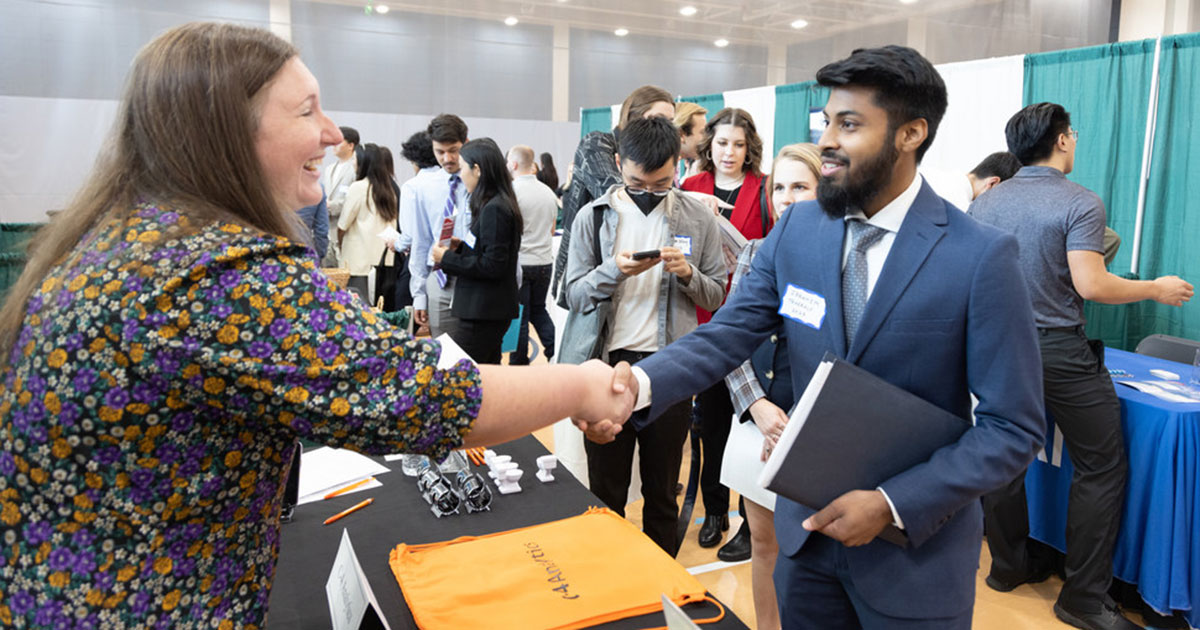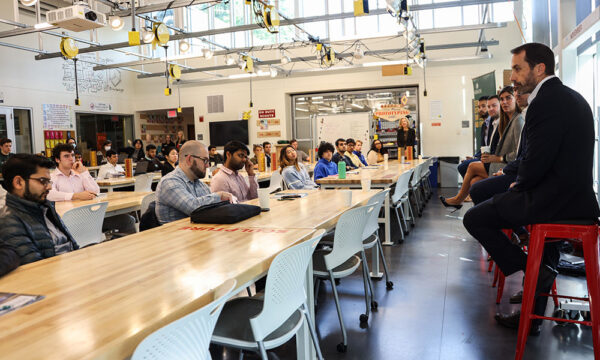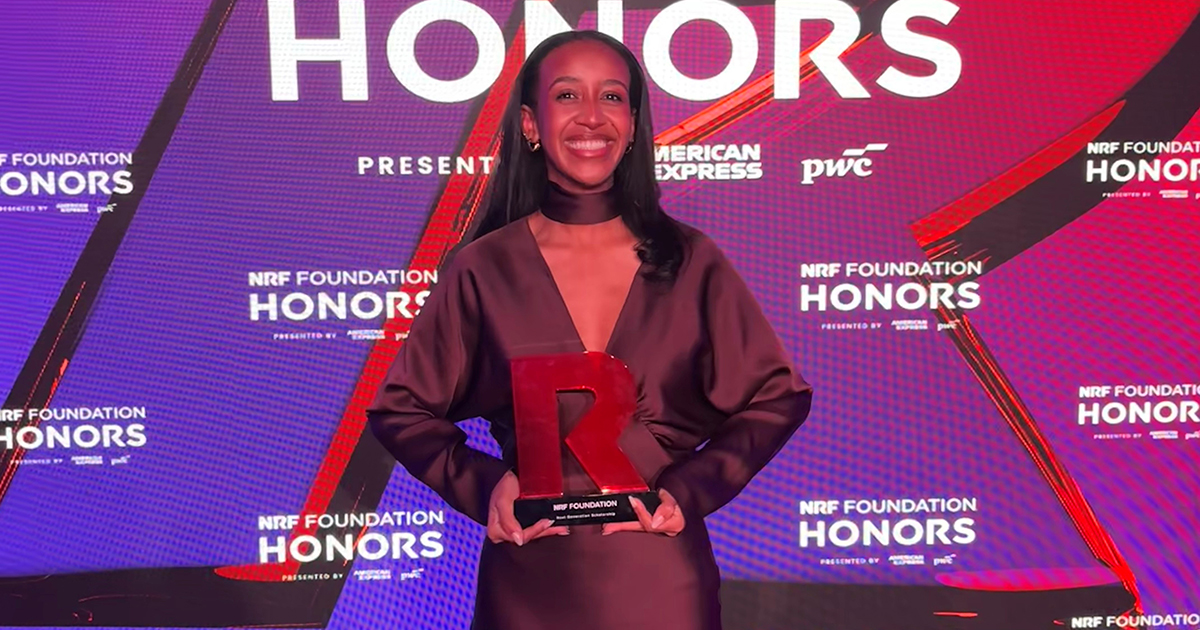Why Babson Is the No. 1 School for Career Preparedness

Babson College has received a lot of stellar rankings lately. Among the litany of good news was an impressive recognition from The Wall Street Journal, which named Babson the No. 1 school for career preparedness.
For Ann McAdam Griffin, the ranking was a well-deserved acknowledgement of the hard work done by Babson’s Hoffman Family Undergraduate Center for Career Development (CCD). “This team is phenomenal,” says Griffin, Undergrad CCD’s director. “It is so wonderful to step back and see them recognized for the work they do.”
The job of making sure students are ready to land employment, however, is a big one and extends far beyond the services that CCD offers. Here are three reasons Babson is rated the highest at career preparedness.
1. Campus-Wide Effort
Career preparedness takes the effort of people and programs across the Babson community.
It involves the CCD and the wide array of assistance the center offers to students, everything from advising and workshops, to recruiting events and online resources. It also entails the mentoring of professors and the teachings in the College curriculum, as well as the experiences that students have outside the classroom, the consulting projects and internships, the teams led and the ventures begun.
“It starts here at CCD, but it is really a campus-wide effort,” says Wendy Murphy, professor of management and associate dean of the Undergraduate School. “That is the secret sauce. That’s why it’s not easy to imitate.”
CCD’s Caroline Hayes agrees. “Our job in CCD is to prepare students to be career ready when they leave,” says Hayes, senior associate director of corporate development and strategic operations. “Campus partners, faculty, and alumni work together to achieve this goal for our students. It is a combination of the work of CCD, the curriculum, and the experiential learning opportunities students take advantage of that all help to ensure they are ready for the workplace.”

At a career event at the Weissman Foundry, alumni talk about their experiences working in the finance industry.
2. A Culture of Career Preparedness
Careers, and figuring out which ones are right for students, are a focus of conversation at Babson. “There is a culture in the whole community to talk about careers,” Griffin says. “You don’t see that at a lot of institutions.”
Student organizations often hold career discussions, and alumni meet with students to share their experiences. Professors also frequently talk about careers with students, as do guest speakers. “We are well known for introducing careers to students in the classroom,” says Larinda Cole, an adjunct faculty of marketing and the CCD senior associate director of inclusion, diversity, equity, and access partnerships and advising.
In the hallmark Babson course Foundations of Management and Entrepreneurship, or FME as it’s commonly known, students are exposed to the many roles that make up a business. In Principles of Marketing, they conduct a personal branding exercise, a helpful activity that allows students to think through how they present themselves to future employers and connections. “They are shaping how they are talking about their careers and themselves,” Murphy says.
3. Meet Students Where They Are
This isn’t to say that Babson is focused on career preparedness above everything else. “Students are here to grow and think about the kind of humans they want to be,” Griffin says. “It doesn’t mean we are a vocational school. We care about the whole student.”
“It starts here at CCD, but it is really a campus-wide effort. That is the secret sauce. That’s why it’s not easy to imitate.”Wendy Murphy, professor of management and associate dean of the Undergraduate School
As students reflect on their futures and recalibrate what they want to do, switching from one industry of focus to another, CCD and the College are there on the journey. “In general, Babson meets students where they are in preparing them for their careers,” Murphy says.
To be No. 1, and to meet students where they are, means CCD is always thinking about how it can better reach and serve students. “We are continuously innovating,” Griffin says, “in order to ensure that all of our career programs, services, and events are accessible to all of our students.”
Posted in Outcomes




